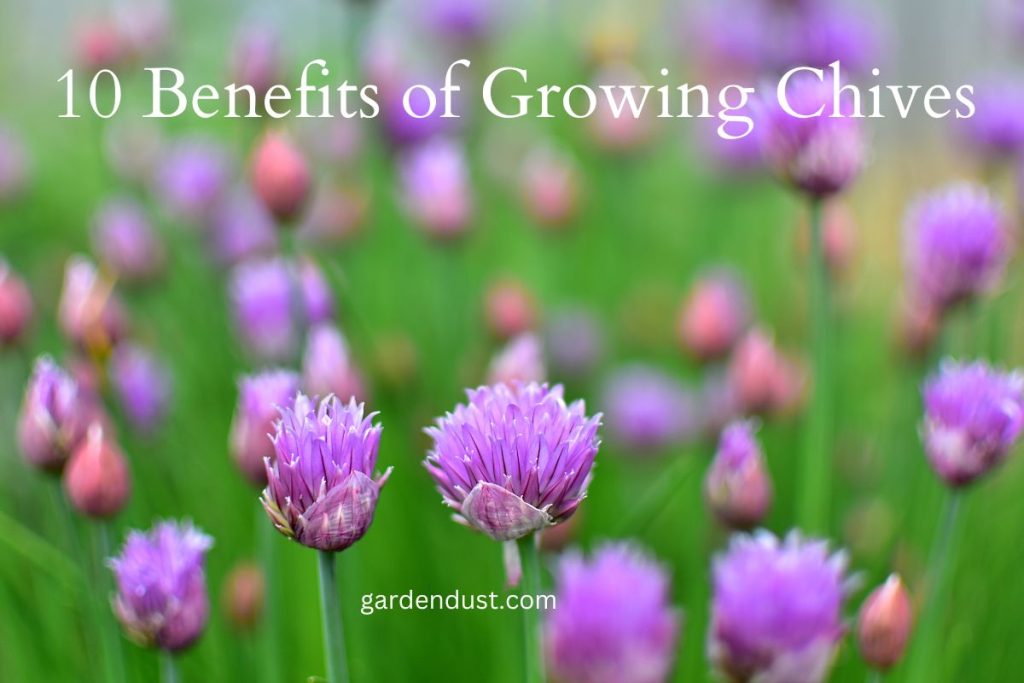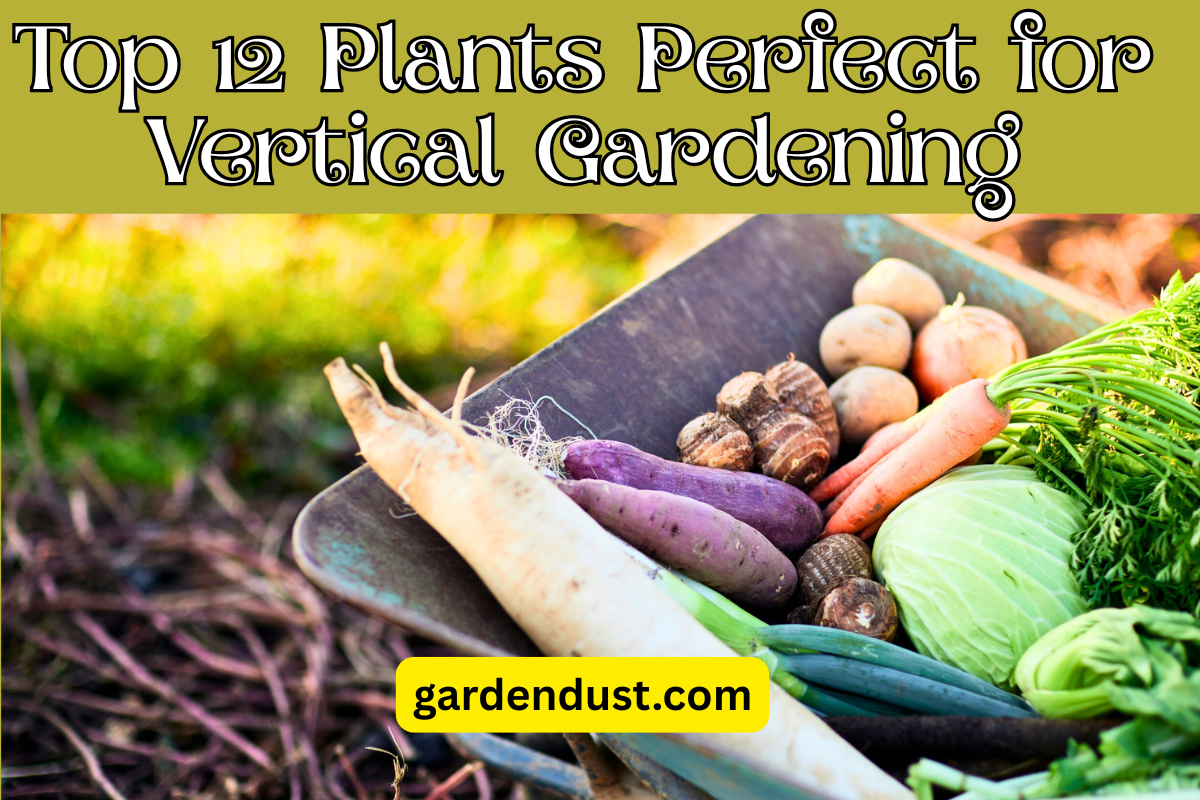The joy of gardening extends beyond the vibrant colors of blooming flowers; it embraces the realm of culinary delights as well. Among the myriad of herbs that can be cultivated in a garden, chives stand out as a versatile and rewarding addition. With their delicate green stems and mild onion flavor, chives offer an array of benefits that extend beyond the kitchen. In this article, we will explore 10 Benefits of Growing Chives in Your Herb Garden, from their culinary uses to their role in promoting biodiversity. Let’s begin….
Benefits of Growing Chives-
1. Culinary Versatility
Chives, scientifically known as Allium schoenoprasum, belong to the onion family and are renowned for their mild onion flavor. This makes them a versatile herb that can enhance the taste of various dishes. From salads and soups to omelets and stir-fries, chives add a subtle oniony kick, enhancing the overall flavor profile of your culinary creations. Their versatility makes them a must-have in any kitchen garden.
2. Nutritional Powerhouse
Beyond their delightful taste, chives are packed with essential nutrients that contribute to a healthy diet. They are an excellent source of vitamins A and C, important antioxidants that support immune function and skin health. Additionally, chives contain minerals such as calcium, iron, and potassium, contributing to overall well-being. Incorporating fresh chives into your meals not only elevates flavor but also boosts the nutritional content of your dishes.
3. Low Maintenance
One of the greatest benefits of growing chives is their low-maintenance nature. These hardy perennial herbs are easy to cultivate, making them an ideal choice for both experienced and novice gardeners. Chives thrive in well-drained soil and prefer a sunny location. They are resilient to various weather conditions and can withstand occasional neglect. Once established, chive plants require minimal attention, making them a hassle-free addition to any garden.
4. Companion Planting
Chives are not only valuable in the kitchen; they also play a crucial role in promoting biodiversity through companion planting. Planting chives alongside other vegetables and herbs can help repel pests that might harm your garden. Their pungent aroma acts as a natural deterrent for pests like aphids and carrot flies, creating a protective barrier around neighboring plants. Embracing chives as companions in your garden encourages a healthier, pest-resistant environment for your crops.
5. Aesthetic Appeal
Beyond their culinary and practical benefits, chives contribute to the aesthetic appeal of your garden. With their slender green stems and delicate purple flowers, chive plants add a touch of elegance to any outdoor space. Whether planted in herb beds, containers, or alongside other ornamental plants, chives create a visual spectacle that is both charming and functional. The addition of these visually pleasing herbs can transform your garden into a harmonious and vibrant haven.
READ ALSO:-How To Grow And Care For Chives
6. Continuous Harvest
Chives offer the unique advantage of a continuous harvest throughout the growing season. Unlike some herbs that require time to recover after harvesting, chives can be snipped regularly without compromising the plant’s health. This makes them an excellent choice for those who enjoy having fresh herbs readily available for their culinary endeavors. Regular harvesting not only ensures a steady supply for your kitchen but also encourages bushier and more robust chive plants.
7. Culinary Creativity
Growing chives opens the door to culinary creativity, allowing you to experiment with flavors and textures in your dishes. The mild onion flavor of chives complements a wide range of ingredients, making them a versatile herb for both savory and sweet recipes. From chive-infused oils and vinegars to chive-flavored butters and spreads, the possibilities are endless. Cultivating chives in your garden provides you with a palette of culinary possibilities to explore and enjoy.
8. Medicinal Uses
Historically, chives have been recognized for their medicinal properties. While not a substitute for professional medical advice, chives have been used in traditional medicine to address certain health issues. Their potential anti-inflammatory and antibacterial properties make them an interesting addition to the list of herbs with potential health benefits. Incorporating chives into your diet may contribute to overall well-being, but it is important to consult with a healthcare professional for personalized advice.
9. Sustainable Gardening
Growing chives aligns with the principles of sustainable gardening. As a perennial herb, chives require less replanting and maintenance compared to annuals. Their ability to thrive in various climates and soil conditions reduces the need for excessive water, fertilizers, and pesticides. By incorporating chives into your garden, you contribute to a more sustainable and eco-friendly gardening practice, promoting biodiversity and preserving the natural balance of your outdoor space.
10. Community Engagement
Sharing the bounty of your chive harvest can foster community engagement and connection. Whether you swap herbs with neighbors or participate in local farmers’ markets, chives become a means of bringing people together through a shared appreciation for fresh, homegrown produce. By cultivating chives in your garden, you not only enrich your own culinary experiences but also contribute to a sense of community and interconnectedness with those around you.
The decision to grow chives in your garden brings forth a multitude of benefits that extend beyond the boundaries of culinary delight. From their nutritional value and low-maintenance nature to their role in companion planting and aesthetic appeal, chives prove to be a valuable addition to any garden. Embrace the joy of cultivating these versatile herbs, and witness the transformation of your outdoor space into a thriving haven of flavor, sustainability, and community. Happy Gardening….







